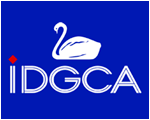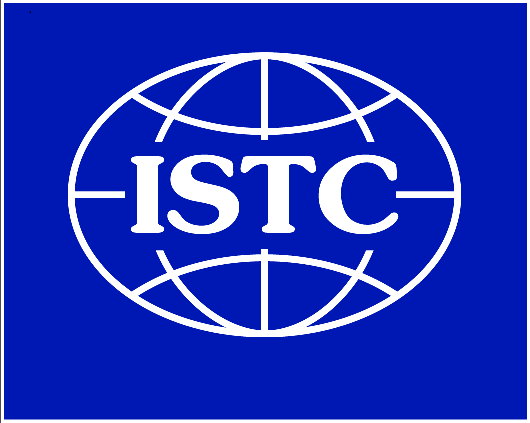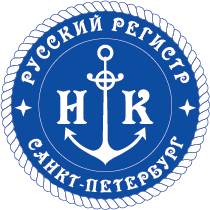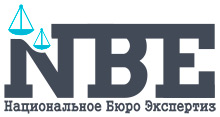NEWS AND COMMENTS
"Sea Trade Port "Ust-Luga" JSC has successfully passed the certification audit...
IDGCA presents Russian version of the IMDG Code latest edition on disks...
An IMO circular does not define competency of national authorities...
XIII International Conference «Multi-modal transportation of dangerous goods»...
An IMO circular does not define responsibilities and authority of national organizations...
| Merry Christmas and Happy New Year! | |
|---|---|
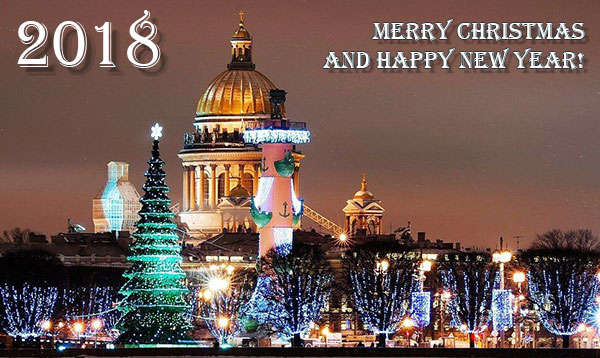 | |
| The Administrative Regulation, regulating the issues in the field of transport of dangerous goods by road, have been approved | 29.12.2017 |
|
On the official Internet portal of legal information www.pravo.gov.ru published an order of the MIA of Russia of 29 November 2017 No. 900 "On approval of the Administrative Regulations of the Ministry of Internal Affairs of the Russian Federation for the provision of a public service for the issue of a certificate of admission of vehicles for the transport of dangerous goods". On January 7, 2018 this normative legal act will take effect. The need for the development of departmental regulations is conditioned by the fact that the matter of issuing a certificate of admission of vehicles for the transport of dangerous goods were not normatively regulated by the legislation of the Russian Federation. For example, the issuance of a certificate of admission of vehicles for the transport of dangerous goods is provided by section 9.1.3 of the European Agreement concerning the International Carriage of Dangerous Goods by Road (ADR) of 30 September 1957, which is in force in 48 countries, including the Russian Federation acceding to agreement on 3 February 1994. The rules for the carriage of goods by road, approved by the Russian Government Resolution No. 272 of April 15, 2011, determined that the transport of dangerous goods by road in urban, suburban and long-distance communication is carried out in accordance with the requirements established in this European Agreement. Along with this, the duty of the police to issue, in the established cases, certificates of admission of motor vehicles for the transport of dangerous goods is determined by part 19 of Article 12 of the Federal Law "On Police". The adopted Administrative Regulations establish a list of documents necessary for obtaining the state service; determined the composition, sequence and timing of the implementation of administrative procedures, requirements for the order of their implementation; forms of control over the provision of public services, the procedure for appealing decisions and actions of authorized officials providing public services are given. Also, the regulation defines the reasons for refusing to accept documents required for the provision of public services, and cases in which the provision of a service can be suspended or denied. According to the provisions of the Administrative Regulations, payment of the state fee for the provision of public services is not provided. (The information was published on December 28 at 12:00 on the site https://ìâä.ðô/news/item/11934632) | |
| Does IMO create administrative barriers? | 28.12.2017 |
|
On 21.12.2017, «PortNews» IAA posted an interview with Mr. Klyuev V.V., Director of the Department of State Policy in the Field of Sea and River Transport of the Ministry of Transport of Russia, in which he stated: "Shipping is global". The administration of this activity is carried out by the International Maritime Organization, the International Labor Organization, the International Telecommunication Union, the World Health Organization and other organizations. Many rules and requirements, the so-called administrative barriers, are based on international documents. It is rather strange to hear from the lips of a responsible official who represents the interests of the Russian Federation in the International Maritime Organization (further IMO) that IMO is engaged in the administration of activities related to navigation. Mr. Ashok Mahapatra, Director of the Maritime Security Department, says in his letter of January 23, 2017: "IMO is an intergovernmental body that deals with matters referred to it by its Member States. This Organization is mainly involved in development, on the basis of proposals by Member States, of international regulations. The implementation and practical application of the international regulations is the responsibility of the maritime Administrations concerned (i.e. the Government of the State whose flag the ship is entitled to fly)." Consequently, international instruments, in particular conventions, rules, codes, recommendations, etc., are developed within international organizations, which are subsequently integrated into national rules and regulations by participating States of international organizations, and administration is the responsibility of national governments, not international organizations. | |
| Audit of the quality management system | 15.12.2017 |
|
DNV GL (International Certification Society) conducted an audit of the International Staff Training Center (ISTC) in order to determine the compliance of the quality management system of the center with the ISO 9001-2015 standard, as well as assessing its effectiveness for training and organizing the training process for specialists engaged in various fields with safety in transport and in industry. On the results of the audit was made a positive decision on the possibility of issuing an ISO 9001-2015 certificate. | |
| New edition of the Recommendations on the Transport of Dangerous Goods | 11.12.2017 |
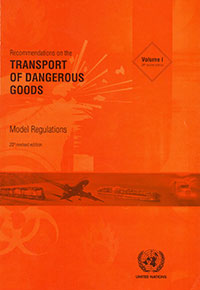
A new edition of the Recommendations on the Transport of Dangerous Goods (Model Regulations, edition of 2017 in English) has been added to the library of "IDGCA". The Russian version of this document is expected in 2018. | |
| Russia had acceded to the ADR Additional Protocol | 07.12.2017 |
|
The Ministry of Transport of the Russian Federation has prepared the Draft Decree of the Government of the Russian Federation "On the Accession of the Russian Federation to the Additional Protocol to the Convention concerning the Contract of the International Carriage of Goods by Road (CMR) regarding the Electronic Consignment Note". The Protocol provides for the simplification and acceleration of the procedure for processing the contract of carriage by electronic means of communication by introducing an electronic consignment note, having an equal legal binding with a paper version of the consignment note provided for under the Convention. Source: IPA "GARANT" | |
| «IDGCA» supported the proposal of the Russian Federation | 06.12.2017 |
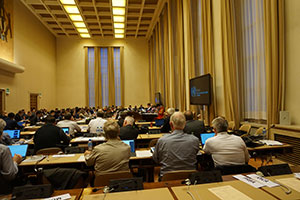
Between May 27 and December 6, the 52nd session of the UN ECOSOC Sub-Committee of Experts on the Transport of Dangerous Goods was held in Geneva. Mikhail Ognev, Director General of the International Association of Dangerous Goods and Containers, took part in the session. The session, along with other important issues on the agenda, considered the proposal of the Russian Federation to introduce requirements for fibre-reinforced plastics (FRP) portable tanks into the UN Model Regulations on the Transport of Dangerous Goods. The proposal is contained in document ST/SG/AC.10/C.3/2017/40 - (Russian Federation) - Fibre-reinforced plastics portable tanks. Russian Federation provided extensive material on the design, manufacture and operation with FRP, and draft chapter 6.9 for inclusion in the UN Model Regulations. To this document, submitted by the Russian Federation, there were proposals and comments from Finland, as described in document UN/SCETDG/52/INF.36. From the International Association of Dangerous Goods and Containers, proposals and comments were set out in document UN/SCETDG/52/INF.41. After an active discussion of the submitted documents, the UN experts decided to create an international group on correspondence to develop a concept for the development of requirements for FRP and further introduction of these requirements into the UN Model Regulations on the Transport of Dangerous Goods. The representative of IMO participating in the session also expressed the International Maritime Organization's extreme interest in developing international requirements for fibre-reinforced plastics portable tanks. The group on correspondence was invited to head the representative of the American delegation - Mr. Webb. A representative of the International Association for Dangerous Goods and Containers, Mikhail Ognev, confirmed the intention of the Association's experts to actively participate in the work on the preparation of international rules for FRP. The Russian Federation at this session was represented by Vladimir Maksimov (branch of JSC Russian Railways), Sergey Lyagusha (RMRS) and Alexander Fetisov (RMRS). Additional information: The first fibre-reinforced plastics portable tank was designed and manufactured in 1998 by the company "MetallKomposit", the general director, which was Dmitry Grigoriev. Around the same year, proposals relating to FRP were submitted to the International Maritime Organization on behalf of the Russian Federation. These proposals were supported by IMO experts. However, due to the circumstances that developed in those years, the company "Metallkomposit" could not finish the work until the end, and the theme "subsided". And now, 20 years later, due to the initiative of the Russian Federation, the perspective theme has again reached the global level. | |
| Implementation of a new quality management system | 29.11.2017 |
|
For realization the goals in the field of quality provision of services for additional vocational education in "International Staff Training Center" (ISTC) was created and implemented a quality management system in accordance with the requirements of the International Standard ISO 9001-2015. Top management of the ISTC has established and supports a Quality Policy which corresponds to mission and strategic aspirations of the organization. | |
| Our contribution to the realization of a major project | 27.11.2017 |
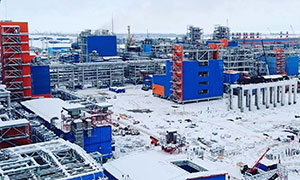
During the period from October 16 to October 20 and November 13 to November 17, 2017 were trained 30 employees of Yamal LNG by the International Staff Training Center (ISTC) regarding the training program of specialists for loading and unloading activities for dangerous goods in seaports and in inland waterway transport. Besides the general items of the upgrade education program, big attention by the training was paid the basic rules of working with cryogenic equipment, as well as the prevention of accidents at the hazardous industrial objects containing liquefied natural gas and the liquidation of their consequences. Please be informed that in the near future the company Yamal LNG will carry out operation a plant for liquefying natural gas in Sabetta (Yamalo-Nenets Autonomous Okrug). | |
| The letter which has shocked the world of containers and packing | 22.11.2017 |
|
The tare case goes on. On November, 21 it is exactly one year from the moment when the Director of the Department of State Policy for Marine and River Transport of the RF Ministry of Transport, Vitaly Klyuev, signed the "Decree" on the prohibition against transportation of dangerous goods without certificates of Federal Autonomous Organization "Russian Maritime Register of Shipping" (further "RMRS" FAO). Battles which have captured the world of containers and packing were reflected in tens of letters and claims addressed to the RF Ministry of Transport by Russian organizations nonplused by the sudden decree by Mr. Klyuev V.V. Representatives of the port authorities, who were told to execute that dangerous decision, were at their best and intelligently withstood Vitaly Klyuev's onslaught, having left the things as they were until issuance of the regulatory legal act of the Russian Federation. The top management of the RF Ministry of Transport and the people respected by us, namely, Maxim Sokolov, the Minister, Sergey Aristov and Victor Olersky, his deputies, failed to find time to respond to the official appeals by IDGCA NP and tare manufacturers and redirected them to Mr. Klyuev who was claimed against. Vitaly Klyuev, a skilled official, courageously held the fort and trying to justify his actions sent to the angered tare manufacturers the same answers, containing "hard to understand arguments". However, he couldn't specify the regulatory legal act defining monopoly of "RMRS" FAO for certification. Summing up the results of the tare case for the year the following should be emphasized:
Time will show what will be the next year, but we are absolutely sure that our officials are full of wisdom. | |
| The new ISO standard | 03.11.2017 |

Voting according to the final project of the International Standard (Final Draft International Standard (FDIS)) ISO/FDIS 21010. "Cryogenic vessels - Gas / material compatibility" comes to the end. International Standard setting the basic requirements for oxygen compatibility and oxygen rich mixtures with different materials and recommending suitable test procedures has an exceptional importance for safety in the manufacture, storage, transport and use of oxygen.The text of this document takes into account the comments that were previously sent to the Technical Committee by the experts of "IDGCA". In accordance with the UN Model Regulations on the Transport of Dangerous Goods, oxygen is classified as a dangerous substance in any of its aggregate states. The standard is developed within the ISO Technical Committee TC 220 "Cryogenic vessels" (ISO/TC 220 "Cryogenic vessels"), which includes experts of "IDGCA". | |
| About the safety passport of chemical products | 02.11.2017 |
|
The chemical safety passport is a document that is an obligatory component of technical documentation for chemical products (substance, mixture, material, industrial waste) and is intended to provide the consumer with reliable information on the safety of industrial use, storage, transportation and disposal of chemical products, as well as its use for domestic purposes. Nowadays in the Russian Federation there is no normative legal act defining the procedure for the development and registration of a safety passport, however, international regulations prescribe the existence of such a passport when manufacturing, storing and transporting a chemical. Despite the absence of a legal act, there is a system for the development and registration of safety passports for chemical products in the Russian Federation. Manufacturers of chemical products are obligated to have a safety passport, in accordance of GOST 30333-2007 and technical conditions for the production of chemical products. In this case, the safety passport developed by the manufacturer of the product must be modified to meet the requirements of international regulations and consider the specifics of all types of transportation (including maritime). Transportation of goods abroad supposes availability of a safety passport in English (MSDS). In the European Union, Regulation (EU) ¹ 1907/2006 of the European Parliament and the Council of the EU of December 18, 2006 concerning the registration, estimation, authorization and restriction of chemicals (REACH) is in effect. In accordance with the regulations, chemicals can be issued on the EU market only if they have been registered. Registration of substances imported into the European Union, either by themselves or as part of preparations, must be fulfilled by an importer from the European Union. Manufacturers of substances or preparations outside the EU exporting them to the European Union are also obliged to comply with the registration procedure for the chemical. When the exported chemical or preparation is classified as dangerous, it is necessary to prepare and provide the importer with a chemical safety data sheet (MSDS/SDS). It is necessary to note, that manufacturers (suppliers) of chemical products are obliged to develop a safety passport, however, they can contact specialized organizations for help. «IDGCA» is ready to provide services on development and registration of the safety passport and MSDS. For this purpose it is necessary to direct the APPLICATION. | |
| A new stage of cooperation with Yamal LNG | 26.10.2017 |
|
The International Staff Training Center (ISTC) has started to the two-stage training process for Yamal LNG employees as part of the training program for loading and unloading activities regarding dangerous goods in seaports and in inland waterways. 15 engineers and operators of this largest company were trained and successfully passed the exam in the period from October 16 to October 20, 2017. The training program for Yamal LNG employees has an exclusive nature. It intends studying not only the requirements of the international and national legal framework governing the transportation and handling of dangerous goods, but also the features of cryogenic equipment, including properties of liquefied natural gas and special measures and rules for ensuring safety when working with it. The second group of specialists of Yamal LNG will be trained at the ISTC in the period from November 13 to 17, 2017. | |
| The development of sea transport has long-term prospects | 17.10.2017 |
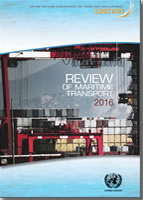
From the secretariat of UNCTAD to «IDGCA" was entered a new issue of the journal "Review of Maritime Transport" for 2016 in Russian. The Review of Maritime Transport is a recurrent publication prepared by the UNCTAD (United Nations Conference on Trade and Development) secretariat since 1968. The present edition of the Review of Maritime Transport takes the view that the long-term growth prospects for seaborne trade and maritime businesses are positive. There are ample opportunities for developing countries to generate income and employment and help promote foreign trade. | |
| 60 years of space age | 06.10.2017 |

These days are celebrated by people enlightened in the space theme as the 60th anniversary of the space age of mankind. After so many years the event that took place on October 4, 1957, is unfortunately forgotten, and even our media does not pay much attention to it. But it was October 4, 1957, 10:28:34 p.m., when R-7 carrier-rocket with the world's first artificial Earth satellite was launched from the 5th Research Test Site of the Ministry of Defense of the USSR (later – Baikonur cosmodrome). The code designation of the satellite was ÏÑ-1 (ÏÑ designates "the simplest satellite"). In 295 seconds after the launch, the central unit of the carrier-rocket with the satellite was put into an elliptical orbit with the height of 947 km at the apogee, and 288 km at a perigee. On the 315th second of the flight the satellite separated, and its call sign appeared on the air. The satellite was in flight for 92 days and made 1440 revolutions around the planet. The world media expressed admiration for this great event. Here are just a few headlines of foreign press publications relating to October 1957: "The greatest sensation of the century", "The cherished dream of mankind is brought to life", "The Window to the Universe is opened by the Soviets", "This great victory is a landmark in the history of civilization", "It is already clear that October 4, 1957 will leave its mark in history for ever". October 4, 1957 will forever remain the day of the greatest triumph of our country, its scientists, engineers, workers, servicemen and all others who, in one way or another, were involved in the beginning of the space age. It is noteworthy that the legendary rocket "Seven", developed and created under S.P. Korolyov guidance, works in modified versions up to now and puts manned, cargo and other space vehicles into earth orbits. The engines of this spacecraft carrier use hydrocarbon fuel (in fact, high-grade kerosene) and liquefied oxygen (boiling point at atmospheric pressure is minus 183ºÑ) as rocket fuel components. Both these components are dangerous goods with UN numbers 1073 (oxygen) and 1863 (kerosene), and handling them requires special theoretical and practical training. | |
| "Sea Trade Port "Ust-Luga" JSC has successfully passed the certification audit of the quality management system | 05.10.2017 |
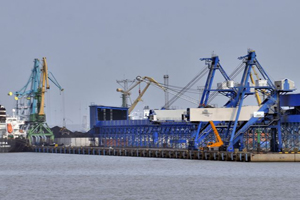
On September 27, 2017, "Sea Trade Port "Ust-Luga" passed the certification audit of the quality management system to confirm compliance with the new version of ISO 9001-2015. For observance of the standard requirements at the enterprise, specialists of "National Bureau of Expertise" Company in conjunction with "International Staff Training Center" FVE PF carried out development of documentation, consulting and training of the personnel. As the result of joint work, more efficient functioning of the quality management system was achieved, and consequently, manageability of the enterprise was improved and its competitiveness was increased. The result of the work was a successfully conducted certification audit of the quality management system by one of the world’s leading certification companies – International Certification Body "DNV GL" with the subsequent issuance of Quality Management System Certificate of Conformity, which is in high demand all over the world. To date, "Sea Trade Port" Ust-Luga" JSC is the largest logistics center in the North-West region of Russia, specializing in handling, warehousing and storage of cars, large-scale rolling equipment, containers, general and project cargoes. The company participates in large hydrocarbon projects, including transshipment of cargoes for Turkish Stream gas pipeline under construction. Under the leadership of the General Director, M.Y. Talanenko, the company is developing rapidly applying advanced technologies and relevant management strategies based on the continuous monitoring of services quality and compliance with the legal requirements. | |
| A new warning has been issued by the International Maritime Organization (IMO) | 27.09.2017 |
|
Bauxite is one of the world’s major sources of aluminium with around 100 million tonnes transported annually by sea. In 2015, a bulk carrier sank while transporting bauxite, with the loss of 18 seafarers. Research presented this week to an IMO Sub-Committee found that certain forms of bauxite with a large proportion of smaller particles could be subject to a newly-identified phenomenon of "dynamic separation" when there is excess moisture in the cargo. In such conditions, a liquid slurry (water and fine solids) can form above the solid material, according to the report of an international Global Bauxite Working Group on Research into the Behaviour of Bauxite during Shipping. The resulting free surface effect of liquid sloshing about could significantly affect the vessel's stability, leading to the risk of the ship capsizing. IMO’s Sub-Committee on Carriage of Cargoes and Containers (CCC 4, which met 11-15 September at IMO Headquarters), raised awareness on the potential risks posed by moisture and provided new guidance on carriage of bauxite, in the form of a circular aimed at shippers, terminal operators, shipowners, ship operators, charterers, shipmasters and all other entities concerned. Source: www.imo.org/en/MediaCentre/PressBriefings/Pages/22-bauxite-CCC.aspx | |
| Upcoming list of session of UNECE working bodies for dangerous goods, for year 2017 | 27.09.2017 |
|
19 to 29 September 2017 (WP.15/AC.1) Joint Meeting of the RID Committee of Experts and the Working Party on the Transport of Dangerous Goods 06 to 10 November 2017 (WP.15) Working Party on the Transport of Dangerous Goods (103rd session) 27 November to 06 December 2017 (AC.10/C.3) ECOSOC Sub-Committee of Experts on the Transport of Dangerous Goods (52nd session) 06 to 08 December 2017 (AC.10/C.4) ECOSOC Sub-Committee of Experts on the Globally Harmonized System of Classification and Labelling of Chemicals (34th session) Source: www.unece.org/trans/danger/danger.html | |
| «ÓÐÀËÕÈÌ» ïåðâûì â Ðîññèè ñåðòèôèöèðîâàí ïî ñòàíäàðòó «Protect & Sustain» | 21.09.2017 |
|
Ôèëèàë «ÏÌÓ» ÀÎ «ÎÕÊ «ÓÐÀËÕÈÌ» â ã. Ïåðìè ñòàë ïåðâûì ïðîìûøëåííûì ïðåäïðèÿòèåì â Ðîññèè, ñåðòèôèöèðîâàííûì ïî ñòàíäàðòó «Protect & Sustain» Ìåæäóíàðîäíîé àññîöèàöèè ïðîèçâîäèòåëåé ìèíåðàëüíûõ óäîáðåíèé (International Fertilizer Association, äàëåå IFA). Àóäèòîðû øâåéöàðñêîé êîìïàíèè SGS – îäîáðåííîãî àññîöèàöèåé îðãàíà ñåðòèôèêàöèè – ïî äîñòîèíñòâó îöåíèëè ðàáîòó ïðåäïðèÿòèÿ â îáëàñòè ñîîòâåòñòâèÿ òðåáîâàíèÿì âûñîêèõ ìåæäóíàðîäíûõ ñòàíäàðòîâ. «Protect & Sustain» áûë ðàçðàáîòàí ÷ëåíàìè Ìåæäóíàðîäíîé àññîöèàöèè ïðîèçâîäèòåëåé ìèíåðàëüíûõ óäîáðåíèé ñ ó÷àñòèåì ïðèãëàø¸ííûõ àóäèòîðîâ è ÿâëÿåòñÿ âñåìèðíûì ñòàíäàðòîì â îðãàíèçàöèè è óïðàâëåíèè ïðîèçâîäñòâîì óäîáðåíèé. IFA ãàðàíòèðóåò, ÷òî êîìïàíèè, ñåðòèôèöèðîâàííûå ïî ïðîãðàììå «Protect & Sustain», ïðèäåðæèâàþòñÿ âûñîêèõ îòðàñëåâûõ ñòàíäàðòîâ â îáëàñòè ýêîëîãèè, áåçîïàñíîñòè è îõðàíû òðóäà ïðè ïðîèçâîäñòâå õèìè÷åñêîé ïðîäóêöèè. «Protect & Sustain», àíàëîãè÷íî ñòàíäàðòàì ISO 9001, ISO 14001 è OHSAS 18001, çàòðàãèâàåò àñïåêòû, ñâÿçàííûå ñ ìåíåäæìåíòîì êà÷åñòâà, îõðàíîé òðóäà è ýêîëîãè÷åñêèìè íîðìàòèâàìè. Óíèêàëüíîñòü ñòàíäàðòà «Protect & Sustain» çàêëþ÷àåòñÿ â òîì, ÷òî îí ó÷èòûâàåò ñïåöèôèêó ïðîèçâîäñòâà, ëîãèñòèêè è ïðèìåíåíèÿ óäîáðåíèé, à òàêæå âêëþ÷àåò â ñåáÿ âîïðîñû áåçîïàñíîñòè ïðîäóêöèè. | |
| Level of oil pollution of the river Volga was called critical by ecologists | 24.08.2017 |
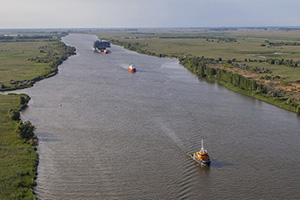
Level of oil pollution of the river Volga is critical and goes beyond acceptable concentration several times. The prime minister of the RF Dmitriy Medvedev early in August in Volgograd held a meeting where urged immediately to proceed to the program execution on purification of the Volga since arose very strained in the RF ecological situation in its basin: the river accounts for about one third of dirty waste waters in the country. Ministry of Natural Resources and Ecology of the Russian Federation valued necessary means for the Volga water purification in the frame of Clean Country project at approximately 34.4 billion roubles. Value of median concentration of oil in 2016 increased to 4 MAC (maximum acceptable concentration), in 2015 it equaled 3 MAC. During the year gradual increase of oil concentration was noted. According to the research results, waters of the Volga in mainstream are polluted with iron compounds, concentrations of which were within 0,6-7,9 MAC. In 2016 eleven cases of high pollution of the Volga with mercury compounds were registered (in 2015 – 13 cases). Concentrations of nickel compounds were within 0,8-42,9 ppb (0,1-4,3 MAC). Pollution of waters by frequency of excess cases of MAC with nickel compounds is determined as "unstable". Content of other metals (chrome, cobalt, lead, cadmium, tin) was at ambient level. Source: Morvesti | |
| Administration of the Federal Antimonopoly Service in Moscow protected the rights of the consigners | 28.07.2017 |
|
The Moscow Administration of the Federal Antimonopoly Service of Russia recognized JSC Russian Railways as a breaker of the antimonopoly legislation in part of abuse of a dominant position (p.1 art.10 of Competition Law). The company banned the acceptance of generator gases for shipment without an agreement for protection of such goods with specialized state enterprise though it had to ensure goods safety on its own. JSC Russian Railways banned the acceptance for shipment such generator gases as propane and butane in case that the consignor has no agreement with the Federal State Enterprise "Security of railway transport of the Russian Federation" for cargo escorting and protection. At the same time according to the current legislation carrier provides cargo protection in transit and at the railway stations at their own expense or under an agreement with the security of the federal executive authority for railway transport or with other organizations. There is exception for goods the protection and escort of which should provide consignor or consignee by virtue of a contract or Charter of the railway transport of the RF. Rules of carriage for transportation of goods by rail with escort and guard approved a list of goods the protection of which is provided by the consignor. At the same time generator gases are not included in the list, therefore it is a carrier’s responsibility to ensure protection of such goods i.e. it is responsibility of JSC Russian Railways. Violation of JSC Russian Railways was in abuse of the dominant position in the rail transportation sector by default of JSC Russian Railways with obligation entrusted to it by the Law on rail transport to security of special cargos (generator gases - propane and butane) that led to infringement of consignor’s interests. On the results of the legal investigation the Moscow Administration of the Federal Antimonopoly Service of Russia recognized JSC Russian Railways as a breaker of Competition Law and issued an order to the company to stop violation of the antimonopoly legislation. Responsibility for this violation of the law stipulated in article 14.31 of the Code of the Russian Federation on Administrative Offences. Penalty for abuse of dominant position according to the article 14.31 of the Code of the Russian Federation on Administrative Offences may amount to 15% of the proceeds of a lawbreaker from realization of goods (works, services) at the market where violation committed. Source: Federal Antimonopoly Service | |
| Group of companies "Kominsur" joined the International Dangerous Goods and Containers Association | 20.07.2017 |
|
In July of the year 2017 the group of companies "Kominsur»" (Kominsur Insurance Ltd.) became an associate member of the International Dangerous Goods and Containers Association (IDGCA) with a consultative vote in accordance with the Statute of the IDGCA Charter. Group of companies "Kominsur" is an insurance broker acting in the European Union and Russia, specializes in insurance of sea transport means, goods transportation, financial risks, terminals and port operators as well as in property insurance, corporate responsibility. Kominsur renders services in reinsurance and distribution/sharing of risks for several insurers, conducts claim work for obtaining insurance compensation, provides advisory support for their clients and partners. IDGCA expresses its firm belief in fruitful and mutually rewarding cooperation with the group of companies "Kominsur". For more detailed information on the profile of the group of companies "Kominsur" please refer to "About Association" page of this site. | |
| The official translation of the IMDG Code will be published soon on the website of the Ministry of Transport of the Russian Federation | 20.07.2017 |
|
International Dangerous Goods and Containers Association received a letter from the Ministry of Transport of the RF which informs that the Ministry has a draft, received from the secretariat of the International Maritime Organization (IMO), of an authentic Russian version with amendments 38-16 of the IMDG Code. This version will be published on the website of the Ministry of Transport of the RF. These needed prompt measures were taken by the Ministry of Transport of the RF after the official letter of the IDGCA to the Minister of Transport Mr M. Sokolov. The prompt measures of the Ministry of Transport of the RF can be considered as an important step on the road of legalization of requirements of the IMDG Code on the territory of the Russian Federation. IDGCA on behalf of its partners expresses gratitude to the Minister of Transport of the RF Mr M. Sokolov. There is a thing that surprises – why the present director of State Policy Department for Marine and River Transport Mr V. Klyuev and the former one – Mr K. Palnikov during several years did not take sufficient measures to ensure that the concerned Russian companies and organizations involved in the process of dangerous goods transportation including Russian packaging manufacturers could use the international regulations. It is curious that the director of State Policy Department for Marine and River Transport by the letter ¹ 05-03/19156-ÈÑ as of 21.11.2016 demanded immediate fulfillment of the IMDG Code requirements before the publication of its official translation. It is believed that the Mr V. Kluyev’s purpose was not at all concern for Russian packaging manufacturers and dangerous goods carriers but a desire to grant a monopoly to his colleague Mr K. Palnikov (who is the present director general of the Federal Autonomous Institution «Russian Maritime Register of Shipping» (RMRS)) for packaging certification services. | |
| Kamchatka: Ship fire brought under control | 20.07.2017 |
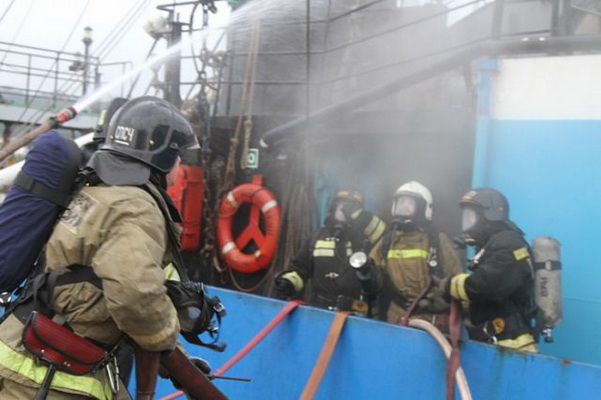
Fire on board ship, destined for collection of water contaminated by petroleum products, brought under control, informed RIA News press secretary of the regional central directorate of the Russian Emergency Minisitry Yulia Ananyeva. As rescue department informed before, the contaminated water collection ship had caught on fire on one of the berths of Petropavlovsk-Kamchatsky. According to the given information, during cleaning of the ship tanks from fuel residues short circuit of electric pump and steam-air mixture inflammation happened that caused fire. After that the fire spread to the mooring fenders that caused strong smoke formation. There were involved 30 first responders on 10 units of equipment to fight the fire. There are no victims and injured in the fire. Adapted from: Morvesti | |
| IDGCA helps the Federal Service for Supervision of Transport (Rostransnadzor) | 06.07.2017 |
|
IDGCA gave Rostransnadzor electronic version of the new edition of International Maritime Dangerous Goods Code (IMDG Code) in Russian with amendments 38-16 entering into force on 01 January 2018. Official edition of IMDG Code in Russian has not been issued so far that considerably complicates the work of enterprises and organizations whose activity is connected with transportation of dangerous goods at sea. Urgent transfer of the Russian version of IMDG Code to the government and business is necessary for many reasons, one of which is requirements implementation of IMDG Code when manufacturing, testing and marking packaging for transportation of dangerous goods. Russian Maritime Register of Shipping (RMRS) which, with the issue of the letter ¹ 05-03/19156-ÈÑ as of 21.11.2016 signed by the Director of State Policy Department for Marine and River Transport of the Ministry of Transport of the Russian Federation Mr. V. Klyuev, unexpectedly began to have monopoly right to certification of packaging and package, offers packaging manufacturers instead of official translation of IMO international standard its imperfect requirements and rules which first of all reflects organization’s own interests. IDGCA also addressed the Minister of Transport of the RF with the necessity of training experts on new version of IMDG Code and acceleration of official edition of IMDG Code in Russian. Substitution of the international safety standards with the organization’s internal standards unlikely serves for safety improvement on transport but it contributes to the corruption prosperity since a declarant for certification has to fulfill blindly the organization’s requirements established by it. | |
| 18th plenary session of the ISO technical committee 220 (ISO/TC 220) «Cryogenic vessels» | 16.06.2017 |
|
18th plenary session of the ISO technical committee 220 (ISO/TC 220) «Cryogenic vessels» took place on 14 June 2017 in Houston (Texas, the USA). Participants adopted a number of resolutions. In particular, in accordance with resolution ¹2, for the next three-year period the directors of working groups for committee WG 1 «Design and construction», WG 2 «Operational requirements» and WG 3 «Supporting standards» were reappointed Mr Hervé Barthélémy, Mr Wolfgang Otte and Mr Alex Varghese. Resolutions adopted regarding development and revision of a number of standards, in particular:
In accordance with the decision of the session participants the 19th plenary session of the technical committee will take place on 4-6 June 2018 in Paris at the suggestion of the delegation of France. Participants of the plenary session warmly thanked the ISO/TC 220 chairman Dr Barthélémy having mentioned his leading part as a committee chairman since 2008, his experience and his contribution to the development and promotion of standardization. For the excellent event organization and offered hospitality organizers of 18th plenary session of technical committee– companies Air Liquide, CGA, Chart è Gardner Cryogenics were expressed gratitude. | |
| Offshore personnel training within the requirements of IMDG Code | 15.06.2017 |
|
On 13-14 June experts of IDGCA on the base of the International Staff Training Center (ISTC) conducted training for the listeners upon «Study of requirements of International Maritime Dangerous Goods Code (IMDG Code) including Amendments 38-16» program. Code with Amendments 38-16 enters into force on 01 January 2018, and on a voluntary basis its requirements may be fulfilled from 01 January 2017 as stipulated in Resolution MSC.406(96) of Maritime Safety Committee (MSC) of the International Maritime Organization (IMO). Provisions subparagraph 1.3.1.1-1.3.1.3 section 1.3.1 «Offshore personnel training» of IMDG Code are compulsory. Training has to be organized or its existence should be checked during job placement for the position connected with transportation and handling of dangerous cargoes. In respect of personnel who have not yet had the required training, the organizations should guarantee that such persons perform their functions under supervision of a person who had training. The documents that certify the completion of training in accordance with the requirements of IMDG Code, must be kept in an organization. All listeners were provided with an electronic version of IMDG Code in Russian. Along with other materials the listeners became acquainted with the requirements of ISO 10106:2006, it may be helpful for packaging and package manufacturers. | |
| Provisional agenda of Experts on the Transport of Dangerous Goods | 14.06.2017 |
|
On 3-7 July 2017 Committee of Experts on the Transport of Dangerous Goods will take place in Geneva. Provisional agenda for the fifty-first session. | |
| The Port of Tianjin and the Port of Vladivostok signed a memorandum of collaboration | 08.06.2017 |
|
Port of Tianjin and the company «Commercial Sea Port of Vladivostok» signed a memorandum of collaboration aimed at expanding bilateral contacts in the sphere of freight handling, rail and water transportation and infrastructure construction as well as at promoting bilateral trade between China and Russia. Company «Commercial Sea Port of Vladivostok» is located on the north-west coast of the Sea of Japan, in the ice-free Golden Horn Bay. It is mainly occupied with transportation of containers, vehicles and large consignments. Port of Tianjin is a beginning of an itinerary of China-Mongolia-Russia Economic Corridor. In recent years the port of Tianjin actively collaborates with the Russian ports. In 2016 total cargoes traffic volume between the port of Tianjin and the Russian ports increased by 32.9% in comparison with the same period of the last year. Source: morvesti | |
| A ship for the project «Yamal LNG» | 05.06.2017 |
|
In Saint Petersburg an arctic LNG tanker was named after Christophe de Margerie. The ceremony took place in the Saint Petersburg deep-water port in the presence of the RF President Vladimir Putin, Council Chair of the Federation of the Federal Assembly (FA) of the RF - Valentina Matvienko, Minister of Transport of the RF– Maksim Sokolov, Minister of Energy of the RF – Alexander Novak, Minister of Economic Development of the RF – Maksim Oreshkin, head of Novatek - Leonid Mikhelson, the President of oil corporation Total S.A. - Patrick Pouyanné and Christophe de Margerie’s family members. The tanker is a flagship among the line of 15 ships alike. The ship is intended for year-round transportation of liquefied natural gas (LNG) in rough conditions of the Kara Sea within the project «Yamal LNG». This project is for development of the South-Tambeyskoye gas condensate field and factory building of LNG 16.5 million tonnes capacity per year. The ship will bear a name after a French businessman, the former chairman of oil corporation Total S.A. - Christophe de Margerie who was tragically killed in plane crash in 2014 at Moscow airport Vnukovo. Adapted from: www.mintrans.ru | |
| IMDGC Code Training | 02.06.2017 |
|
International Staff Training Center (ISTC) starts to give lectures on basic provisions of International Maritime Dangerous Goods Code (IMDGC Code) which includes amendment 38-16 entering into force on January 01, 2018. The first lessons will take place on 13-14 June 2017. The audience, successfully passed the exams, will get certificate of professional development. Course duration: 16 hours. The audience will be provided with electronic Russian version of IMDGC Code with amendment 38-16. For training questions, please contact us: tel. +7 (812) 421-54-51, 740-20-19, +7 (905) 222-51-38 or e-mail: istc@idgca.org | |
| On IDGCA activity in the sphere of development and adoption of international standards | 02.06.2017 |
|
Vote on a draft international standard of ISO/DIS 21012 "Cryogenic vessels — Hoses" took place in technical committee of International Organization for Standardization ISO/TC 220- Cryogenic vessels. This international standard covers development, production and exploitation stages of uninsulated cryogenic flexible hoses used for cryogenic liquids supply. Besides there are provisions in the project concerning samples test and hoses performance test. Hoses with nominal diameter from 10 to 100 should ensure safe operation in temperature range from 270 ° Ñ to + 65 ° Ñ and at nominal pressure to 40. Experts of IDGCA, that represents the Russian Federation in this ISO technical committee, in accordance with the stated procedure have advised the Secretariat of the Russian member body of ISO (Secretariat RosISO) to vote affirmatively, having made two technical remarks. Experts from France (AFNOR) and the USA (ANSI) also made remarks during voting. | |
| New requirements to marine fuel may raise freight rates | 01.06.2017 |
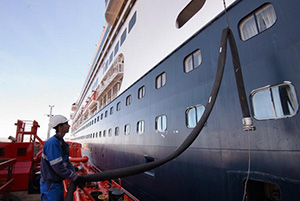
In attempt to limit hazardous emissions the International Maritime Organization (IMO) demands to reduce sulphur content in marine fuel from actual 3.5% to 0.5% beginning from 2020 that may have influence on sea transportation sector by increasing freight rates and fuel price, which in turn impacts air companies and car owners, informs the newspaper «Vedomosti» as referred to Financial Times. During 2,5 years the ship owners have to switch over more high quality and expensive fuel, to invest in emission reduction systems or to choose alternative fuel, for instance, compressed natural gas (CNG). There will arise two problems. Firstly, demand for marine fuel with high sulphur content will reduce roughly by three million barrels, as comments Ho Hui Men from oil trade company Vitol. Secondly, increase in demand for more ecological fuel will make worse capacity bottlenecks and raise price of such oil product as diesel and jet fuel as well as petrol. According to estimates of EnSys and Navigistics Consulting, rules change will lead to price increase about 10-20$ per barrel (or 11-23%) of all these oil products all over the world. Raw materials market – from oil and coal to sugar- also may face freight rate increase. Shipping industry provides transportation about 90% of goods. According to S&P Global Platts, costs on fuel make up 70-80% of general transportation costs. By estimate of Wood Mackenzie, costs of shipping companies on fuel will increase by more than 50%, to 174 billion dollars in 2020. Adapted from: morvesti.ru | |
| Rusaccreditaion in public discusses changes into Administrative policy on state service provision for accreditation | 19.05.2017 |
|
Rusaccrediation conducts a public discussion of draft order of the Ministry of Economic Development of the Russian Federation «On introducing amendments to Administrative policy on state service provision by the Federal Accreditation Service for accreditation of legal persons and private entrepreneurs in the national accreditation system, for expansion, accreditation scope reduction, competence confirmation of accredited parties, accreditation certificate issue, duplicate accreditation certificate issue, cancellation of accreditation, introduction of amendments to information of the accredited parties register, for giving information from the register of accredited parties approved by the order of the Ministry of Economic Development of the Russian Federation as from 1 April 2015 ¹194» in order to implement clause 7 (1) of Rules of development and statement of administrative policies of providing state services approved by the decree of the Government of the Russian Federation as from 16 May 2011 ¹373. Draft order was developed in order to improve legal framework in the sphere accreditation in the accreditation national system, taking into consideration implementation practice of the Federal Law as from 28 December 2013 ¹412-ÔÇ «On accreditation in the accreditation national system» and stipulates changes relating to specification of a number of aggregate terms of some administrative procedures accomplishment and actions, for instance, accreditations and competence confirmation of an accredited party as well as corrections in order to specify and amplify in view of the changes in the regulatory legal acts. You may review the documents and direct the commentaries in section «Legal Act Drafts – Administrative Policies Drafts» of Service site, and also on the official web-site regulation.gov.ru. Suggestions of interested organizations and concerned citizens as well as independent expert examinations are being accepted till 13 July 2017. Source: Rusaccreditaion | |
| The Ministry of Transport of the Russian Federation suggests unified legal basis of relation regulation, appearing in the sphere of the direct multimodal (intermodal) transportation | 19.05.2017 |
|
On 18 May 2017 the Draft Federal Law «On the direct multimodal (intermodal) transportation» was published on the site of the legal reference system Consultant Plus. The draft regulates, specifically:
It is proposed to consider as void the procedure of goods transportation in direct multimodal traffic, provided in the Inland Water Transport Code of the Russian Federation and the Railway Transport Charter of the Russian Federation. Source: www.consultant.ru/law/hotdocs/49599.html | |
| The State Duma proposes to strengthen security measures for the storage of dangerous goods in bonded warehouses | 17.05.2017 |
|
"The Federal Customs Service (FCS) should be empowered to check temporary storage warehouses to ensure compliance with security requirements, the relevant requirements should be regulated by law"- said the first deputy chairman of the State Duma international affairs committee Svetlana Zhurova (United Russia faction) at a press conference, as per TASS information. The State Duma proposes to strengthen security measures for the storage of dangerous goods in bonded warehouses. According to its information, annually, more than 83 million tons of dangerous goods are imported into the Russian Federation, and all these goods are unloaded into temporary storage warehouses (WFS) during customs clearance, where they can be stored for up to four months. "The situation in the warehouses of temporary storage remains in the shadows and does not attract due attention to the monitoring bodies and the public" -the deputy believes. Now all warehouses that are considered as dangerous production facilities must be registered in a special register maintained by Rostechnadzor and receive a license, but such requirements do not apply to bonded warehouses. "The cargo can be detained at the customs office, and the question arises whether all security measures for storage of such goods have been met, and customs can not regulate this process. All this requires legislative regulation " - Zhurova stressed. In this regard, she proposes to develop and introduce into the legislation and other regulatory and legal acts a number of changes, namely: to determine the list of dangerous goods that are subject to regulation in accordance with the legislation on industrial safety, and whose transport requirements are established by international agreements. "It should be also developed an order of FCS, setting requirements for the arrangement of temporary storage facilities, where operations with dangerous goods can be carried out"- the parliamentarian believes. "In addition, it is necessary to adopt amendments to the Customs Code, which provide for a ban on transactions with goods stored in a temporary warehouse with violations of requirements"- she said. The deputy has already sent his proposals to the Ministry of Transport, the Ministry for Emergency Situations, the Federal Customs Service and other departments. "Here we need an interdepartmental solution of the issue with the participation of the government and legislators" -Zhurova believes. Source: www.rzd-partner.ru | |
| 24th Annual General Meeting of International Academy of Refrigeration | 27.04.2017 |
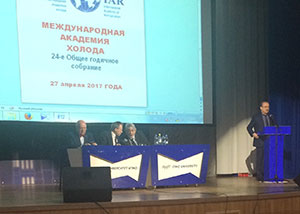
24th Annual General Meeting of International Academy of Refrigeration is held in Saint Petersburg on the 27th of April. At the meeting topical issues on cryogenic technique development, environmental protection, creation and use of renewable energy source, cryomedicine development and etc. IDGCA Deputy Director General, academician of the International Academy of Refrigeration and candidate of technical sciences Mr. V. Tsikhiseli. He carries out work within the framework of ISO technical committee 220 on cryogenic vessels. | |
| On the 18th of April State Secretary - Deputy Minister of Transport of the Russian Federation Sergey Aristov met with Ahti Kuningas - Vice-Chancellor for Transport of the Ministry of Economic Affairs and Communications of the Republic of Estonia | 19.04.2017 |
|
In Moscow on the 18th of April a meeting took place between Sergey Aristov, State Secretary - Deputy Minister of Transport of the RF, chairman of the Russian part of Joint Russian-Estonian Transport Commission and Ahti Kuningas, Vice-Chancellor for Transport of the Ministry of Economic Affairs and Communications of the Republic of Estonia, chairman of Estonian part of Joint Commission during the XXII International Exhibition for Transport and Logistics Services and Technologies «TransRussia» on the initiative of the Estonian side. It was the first meeting between two chairmen since 2013. During the meeting two parties considered a series of topical issues of bilateral cooperation in the sphere of transport including issue on carrying out customs and border procedures during train movements crossing the border between Russia and Estonia. Estonian side showed its interest in goods rail transportation from China to Estonia as transit through the territory of Russia. Russian side on the whole reacted favorably to this initiative and it is open for more specific proposals on its realization. Estonian side has informed that from 2018 introduces road toll in Estonia. Meanwhile, the Russian side made a request for getting more detailed information on this issue to orientate the Russian road carriers. The sides agreed on resumption of the work of Joint Russian Estonian Transport Commission as well as on a regular session in the third quarter of 2017 in Tallinn. Source: mintrans.ru | |
| Consignors will be obliged to declare cargo weight for transportation by road within EU from 7 May 2017 | 18.04.2017 |
|
New law which binds consignors to declare cargo weight when transporting by road on the territory of EU will entry into force on May 7 in the European Union, informs TASS. EU 2015/719 directive is an amplification of amendments to SOLAS Convention on compulsory confirmation of actual container weight before shipment on a board a vessel, which took effect on 1 July of the last year. New directive obliges consignors to provide information to carriers on actual weight of loaded container for transportation by road. "Freight owners will have to give the carriers 'conformity assessment', i.e. the documents which confirm that gross – cargo weight does not exceed load acceptable limits on roads," according to the director of the Freight Transport Association (FTA) Chris Welsh. Mr. Welsh noted that new directive does not require any change in current legislation. Those documents which are provided the present day for weight confirmation during transportation within the EU will be enough, while the freight owners will just give weight confirmation current certificate (verified gross mass, VGM) to fulfil requirements of the new directive when exporting containers outside the EU, according to Chris Welsh. Source: transinfonews.by | |
| VII International forum «Transport security» | 07.04.2017 |
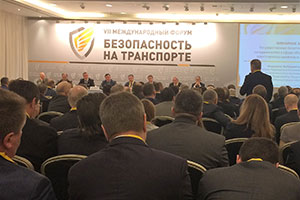
VII International forum «Transport security» took place during the period from 6 to 7 April 2017 in Saint Petersburg. Forum was held with the participation of A. Vyborny - Deputy Chairman of the State Duma Committee of Federal Agency of the RF on security and anticorruption, A. Starovoytov - member of the State Duma Committee of Federal Agency of the RF on transport and construction, N. Zachryapin – Deputy Minister of transport of the RF, V. Basargin – headof Federal supervision agency for transport, E.Nurachmetova – Department Director of Transport and infrastructure of Eurasian Economic Commission and other officials. Participants of the forum considered the issues on safety in all transport modes focusing on antiterrorism measures – the forum took place after the terrorist act at the Saint Petersburg underground. Final resolution was adopted on the results of the forum and all received suggestions and initiatives. Also results of law enforcement practice of the territorial authorities of Rostransnadzor in Northwestern Federal District for the first quarter of 2017 were discussed in public during the forum. V. Tsikhiseli, Deputy General Director of the IDGCA and Yu. Shcherbakov, Executive Director of Russian Register JSC participated in the forum. | |
| President of Russia, Vladimir Putin, signed the law on Russia’s accession to the Montreal Convention, unifying the norms of international air transportation | 07.04.2017 |
|
April 4, Russian President, Vladimir Putin, signed the law on Russia's accession to the Montreal Convention, which unifies the norms of international air transportation. This information is published on the official Internet portal of legal information. The Air Code will be amended, which will give a number of advantages not only to the passengers but also to the airlines. In particular, advantages for the passengers include increasing of the size and the scope of the carrier's liability. Thus, the responsibility for a flight delay will be 4150 special drawing rights (380 thousand rubles), at present the airlines pay only 25 rubles for one hour of delay; this is 25% of the minimum wage. In addition, the Montreal Convention expands passengers’ ability to choose the place to claim filing: now it can be done only at the place of airline company registration, after joining the Montreal Convention a passenger will also be able to file a claim at his place of residence. Another important point is that claims against an international lines carrier can be brought both in a written form, and in the form of an electronic document signed by an electronic signature. There are also advantages for airlines. The possibility of issuing of electronic carriage document for freight traffic is provided (currently the option is available only for passenger carriage, so-called e-ticket, which allows airlines to save hundreds of millions of rubles each year). In case of freight operations the savings will be even higher. The period during which carrier is responsible for harm that occurred in the event of death or injury to a passenger and damage to his baggage is changed. Today, this period lasts from the moment when the passenger passes pre-flight inspection and till the passenger being supervised by authorized persons of the carrier left the aerodrome. The new edition reduces this period and it will last only from the moment the passenger is on board the aircraft, as well as during boarding and unloading. Source: www.mintrans.ru | |
| On the 4th of April negotiations of representatives of Russia and Lithuania on international road transport took place in Vilnius | 07.04.2017 |
|
On the 4th of April negotiations of representatives of transport agencies of the Russian Federation and the Republic of Lithuania regarding international road transport took place in Vilnius. The Russian delegation was headed by Alexey Dvoinykh, Director General of "Rosavtotrans" FBU, and Lithuanian delegation was headed by the Director of Development and International Cooperation Department of Ministry of Transport and Communications, Vladislav Kondratovich. In the course of the meeting the parties noted that the volume of goods transported between Russia and Lithuania in 2016 amounted to 2.2 million tons, which corresponds to the level of the previous year. At the same time, the decrease in import cargo traffic from Lithuania by 5.3% is compensated by the growth of export shipments from Russia by 28%. The Russian delegation brought into focus that the number of permits received from the Lithuanian side for 2017 meets the need of Russian carriers. In their turn, Lithuanian colleagues asked to consider a single interpretation of a trip type for Lithuanian carriers. In their opinion, due to the different interpretation of a trip type by Russian regulatory authorities, Lithuanian carriers are compelled in some cases to use two permits in one trip instead of one. As the result of the negotiations, an agreement was reached that if there is a need for a prompt solution of a permit usage matter, the Lithuanian side can operatively apply to Gosavtodornadzor. At the same time, it is necessary to take additional measures to explain to national carriers the procedure of issuing of shipping documents for transportation of the third states cargoes under bilateral permits. In addition, the date of workshop on the matters of the permits usage with participation of Lithuanian and Russian regulatory bodies and carriers will be determined within a month. Also, the parties discussed the state of regular bus transportation. Some routes are not actually used, and in the nearest future the decision will be made on their further operation or closure. Source: www.mintrans.ru | |
| New issue of «Dangerous goods and containers» magazine. Presentation of the next issue | 03.04.2017 |
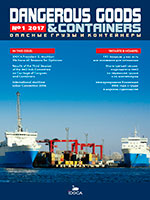
New issue of «Dangerous goods and containers» magazine has been out in 2017. Please address to International Staff Training Center (ISTC) to acquire it. In May it is planned to publish the second issue dedicated to summing-up of XIII International Conference «Multi-modal transportation of dangerous goods and containers» held in Saint Petersburg on 23-23 March. Articles on relevant issues discussed during the conference will be published in the magazine. Read in the new issue:
... and other interesting and useful topics. | |
| IDGCA presents Russian version of the IMDG Code latest edition on disks | 31.03.2017 |
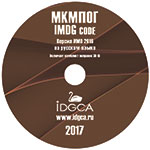 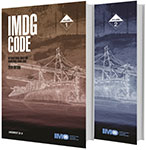
Edition contains text of International Maritime Dangerous Goods Code (IMDG Code) that includes package of amendments 38-16. Edition was prepared by the IDGCA edited by V. Semenov, and intended for preliminary acquaintance by users with the Code revised text (Code with amendments 38-16 will take effect on 01.01.2018) as well as for practical use when its requirements are complied with on a voluntary basis beginning from 01.01.2017 in accordance with the resolution MSC.406 (96) of IMO Maritime Safety Committee (MSC). | |
| On the outcome of the XIII International Conference «Multi-modal transportation of dangerous goods and containers» | 27.03.2017 |
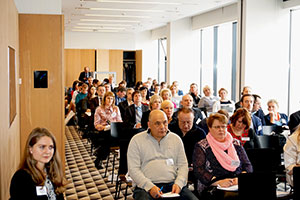 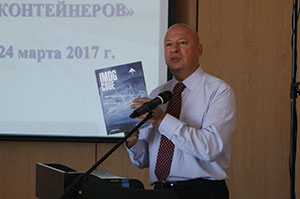 On 23-24 March 2017 the XIII International Conference took place dedicated to discussion of relevant issues concerning transportation of dangerous goods and containers by all transport modes. More than 80 people took part in the conference, among them representatives of 40 large companies dealing with production, transportation and handling of dangerous goods, representatives of the Ministry of Transport of the Russian Federation, regulatory and supervisory agencies (Rostransnadzor, Rostechnadzor) and port authorities. Conference was held in accordance with a planned programme with support by the IMO and the ECOSOC. Topics aroused a keen interest among participants, some presentations and issues caused discussion. IMO representative Mr. Irfan Rahim presented new directions of IMO activity; in particular he covered an issue of ensuring safety at sea related to refugees. Mr. Olivier Kervella, UNECE representative, prepared a presentation on «New edition of ADR 2017». Relevant and sometimes sharp questions were put to director of State Policy Department for Marine and River Transport Mr. V. Klyuev and head of legal administration of the Federal Autonomous Institution (FAI) «Russian Maritime Register of Shipping» (RMRS) Mr. M. Sterling. Specifically, there were question about origin of administrative letter which confers doubtful authority to FAI «RMRS», this letter puzzled port authorities and producers of packaging. They discussed an absence of updated regulatory legal documents governing transportation and handling of dangerous goods on the territory of the Russian Federation as well as law nihilism which is present in maritime industry so far, as, by the way, in other transport modes. Representative of Ministry of Transport of the RF was not be able to give an unambiguous answer to many questions, although he confirmed that the problem should be solved. Detailed information on the conference will be published in the magazine «Dangerous goods and containers» and on the IDGCA website. Organizers of the conference express gratitude to all participants as well as to the Ministry of Transport of the RF in the person of Mr. S. Aristov, to the IMO Secretary General Mr. Kitack Lim and to the Director of the Transport Division of the United Nations Economic Commission for Europe (UNECE) Eva Molnar who supported the conference and sent their representatives. At the end of the conference Mr. Irfan Rahim, IMO representative, handed over the latest edition of IMDG Code, IMSBC Code and other documents for the library of the IDGCA. | |
| Joint Meeting of the RID Committee of Experts and the Working Party on the Transport of Dangerous Goods | 14.03.2017 |
|
Joint Meeting of the RID Committee of Experts and the Working Party on the Transport of Dangerous Goods will be held in Bern during the period from 13 to 17 March 2017. A number of issues will be discussed according to the Meeting agenda. Many issues are connected with application of tanks and its equipment (safety valves, bursting discs, flame arresters of breathing devices). Issues on nondestructive control of tanks welding seams, compatibility of some types of tanks construction with concave part, conformity of tanks to determination of demountable tank or tank container will be considered. Moreover, it will be presented a paper of the Informal Working Party on test and tanks approval to the conferees. A number of issues stated in agenda are related to pressure vessels, also there will be some related to label, information boards and orange color tablets. It is planned to discuss issues on RID/ADR implementation of the provisions concerning safety consultants. Conferees will consider information of the European Committee for Standardization regarding experts’ activity. The Joint Meeting will discuss request of the Council on Safe Transportation of Hazardous Articles (COSTHA) on granting consultative status. Besides, there will be following issues:
| |
| Preparation for XIII International Conference «Multi-modal transportation of dangerous goods» | 07.03.2017 |
|
Dear partners and colleagues! We kindly ask you to notice that XIII International Conference «Multi-modal transportation of dangerous goods» will take place on 23-24 March 2017 in Saint Petersburg. Relevant issues on transport of dangerous goods and containers by all transport modes will be discussed at the conference. Participation of representatives of IMO and UNECE Committee of Experts on Transport of Dangerous Goods and Globally Harmonized System of Classification and Labeling of Chemicals gives this conference special status. IMO Subcommittee of Experts Secretary Mr. O. Kervella will present a review presentation on current and prospective changes of main provisions of international regulations on transport of dangerous goods including transport of dangerous goods in special large capacity containers. Conferees will have an opportunity to obtain comprehensive information on implementation of international conventions, agreements and regulations on the territory of certain states. Understanding of international regulations and its interpretation allow your organization to carry out its activities competently and efficiently in the sphere of production, transportation and storage of dangerous goods and containers. Conference will be a good place for debate between business and authority, exchange of opinions and decisions development. Management of the Ministry of Transport of the Russian Federation was invited to the conference in order that entrepreneurship and port authorities understand what position the Ministry of Transport of the RF holds in the sphere of transportation of dangerous goods. Special attention will be on requirement for transportation and storage of dangerous goods and containers at sea ports. Many prime companies in the sphere of production and transportation of dangerous goods such as Gazprom export, Gazprom georesurs, Gazprom Nadym dobycha, Neftekhimtrans, Container Terminal Saint Petersburg, Containerships Saint Petersburg, Modul, Novosibirsk Chemical Concentrates Plant, New Technology in Transportation, Promperforator, insurance company «Rosgosstrakh», insurance company «Allianz», STS Logistics Company, Uralchem, Feniks, Chempack, 3M Russia, Transport Industrial Service and others confirmed their participation in the conference as well as representatives of port authorities. To the conference IDGCA translated IMDG Code including package of amendments 38-16 which can be purchased on favorable terms. We consider participation in the conference as professional development therefore professional advancement certificate may be issued to the conferees by the International Staff Training Center (ISTC). During the conference Working Group will be created of its conferees in order to prepare suggestions for the government of the RF on changes in domestic legislation in the sphere of transportation of dangerous goods. Please find attached updating interim schedule of the conference. | |
| Congratulations on International Women’s Day! | 06.03.2017 |
|
We congratulate you on International Women's Day! We wish you good health, family welfare, happiness and love! 
President Moshkov G.Y. Director General Ognev M.I. | |
| An IMO circular does not define competency of national authorities | 22.02.2017 |
|
International Maritime Organisation informed in its reply to the letter of «IDGCA» addressed to the IMO Secretary General Mr.Kitack Lim that IMO deals with development of international regulations on the basis of proposals by Member States while Governments of IMO Member States are involved in implementation and practical application of the international regulations. Therefore any IMO circular including IMO circular MSC.1/Circ.1517/Corr., made on the basis of information presented by the State Administrations, does not have legal basis and it is not a regulatory legal act. Competency and exclusive right to carry out certain type of activities can be determined by domestic regulatory legal act only. After this explanation the question arises – how information about The Federal Autonomous Institution (FAI) «Russian Maritime Register of Shipping» (RMRS) has appeared in IMO circular if there is no domestic regulatory act which defines FAI «RMRS» as a competent agency in the sphere of transportation of dangerous goods and containers. Meanwhile, from the letters of the director of State Policy Department for Marine and River Transport of the Ministry of Transport of the Russian Federation Mr. V. Klyuev and his former colleague and presently director general of FAI «RMRS» Mr. K. Palnikov it follows that FAI «RMRS» has an exclusive right to carry out containers, packaging and packages certification assigned by IMO circular. It remains a puzzle who and when directed to IMO information that FAI «RMRS» is «a competent agency authorized for the approval, acceptance and all consequential activities connected with packaging and intermediate bulk containers on the territory of the Russian Federation». International Maritime Organisation decided to avoid this question tactfully... These and other essential issues will be discussed at the forthcoming XIII International Conference dedicated to transportation of dangerous goods and containers in Saint Petersburg. The director of State Policy Department for Marine and River Transport of the Ministry of Transport of the Russian Federation Mr. V. Klyuev and other officials were invited to participate in the Conference. | |
| Plenary meeting of ISO Technical Committee | 16.02.2017 |
|
A plenary meeting of ISO Technical Committee ¹220 (ISO/TC 220) «Cryogenic vessels» will take place on 14 June 2017 in Houston (Texas, the USA). During the meeting they are planning to discuss issues related to projects development of standards on planning, production, control and test of cryogenic vessels and their equipments, including cryogenic insulation, properties of construction materials used in cryogenic vessels production and their compatibility with working masses. They suppose to consider new suggestions on hydrogen and liquefied natural gas use for road transport. Moreover, organizational issues will be discussed, Committee’s work results will be reviewed and future directions of its work will be determined. International Dangerous Goods and Containers Association represents the Russian Federation at ISO/TC220. Experts of IDGCA are going to participate in the plenary meeting in June 2017. At the present time translators are working on the Russian version of the above mentioned standard. | |
| Ministry of Transport of the Russian Federation published a draft decree related to dangerous goods | 15.02.2017 |
|
The Ministry of Transport of the Russian Federation published a draft decree «On approval of the Administrative Regulation of the Federal Service for Transport Supervision of state function realization for licensing supervision of cargo handling operations as applied to dangerous goods for railway transport». | |
| Conference is an important base for business protection and safety | 15.02.2017 |
|
On 23-24 March 2017 a Conference for dangerous goods transportation will take place in Saint Petersburg. It is unique because the guests and at the same time speakers are known experts of IMO and UN directly involved in the process of development and introduction of international rules. Improper application of particular provisions of International Conventions and Codes leads to significant loss for business and safety. Many companies, involved in the process of production and transportation of dangerous goods, transportation equipment and containers, face such facts. In late 2016 transport market was shocked at the administrative letter of the director of State Policy Department for Marine and River Transport Mr. V. Klyuev who with the help of the decree addressed to harbour masters decided to rid an organization «Russian Maritime Register of Shipping» which is under his control of competitors. During the Conference all the participants will have an opportunity to express their opinions and give an estimate of the actions of particular officials and organizations which are under their control. A large number of companies have already confirmed their participation in the Conference. | |
| Viktor Basargin is appointed to act as a Head of the Federal Agency for Supervision in the Sphere of Transport | 14.02.2017 |

Mr. V. Basargin, ex-Governor of Perm Region, is appointed to act in a capacity of the Head of the Federal Agency for Supervision in the Sphere of Transport (Rostransnadzor), the official site of the Government reports. Mr. V. Basargin, ex-Governor of Perm Region, is appointed to act in a capacity of the Head of the Federal Agency for Supervision in the Sphere of Transport (Rostransnadzor), the official site of the Government reports. Mr. V. Basargin was born on 3 August 1957 in a town of Asbest in Sverdlovsk Oblast. In 1976 graduated from the Asbest Mining College; in 1984 – from Sverdlovsk V.V. Vakhrushev Mining Institute (at present, the Ural State Mining University); in 1991 – from the Ural Social & Political Institute. From 1976 worked as an assistant to the dredger operator, shot-firer, senior laboratory engineer, processing engineer in the Ural asbest mining and processing complex (Uralasbest). From 1983 to 1985 Victor Basargin served as a secretary of the All-Union Youth Communist League (AUYCL) Committee in the Central Ore Directorate of the Uralasbest complex. From 1985, the first secretary of the AUYCL Committee of Sverdlovsk Oblast. In 1992 to 1994 Mr. V. Basargin worked in a capacity of head of section and deputy chairman of the Sverdlovsk Oblast Property Fund. Starting from 1994 – first deputy chairman of the Sverdlovsk Oblast Property Fund. Starting from 1996 – chairman of the Sverdlovsk Oblast Property Fund. In 2000 to 2001, head of the management board of the plenipotentiary representative of the Russian President in the Ural Federal District. In 2001 to 2008, deputy plenipotentiary representative of the Russian President in the Ural Federal District. In October 2008, by the Decree of the president of the Russian Federation, appointed as a Minister of Regional Development of the Russian Federation. In March 2012 Mr. V. Basargin was appointed as a chairman of the Monitoring Committee of the State Corporation for construction of Olympic infrastructure and development of the city of Sochi as an alpine climatic resort (Olimpstroy). In March 2012 was appointed also as a chairman of the Monitoring Committee of the State Corporation – Contribution to Reforming of the Housing and Utilities Sector (HUS Fund). DPh, Economic Sciences (2000). Awarded with Honour Order (2007). Married with two children, son and daughter. The Premier Minister, Mr. Dmitriy Medvedev, said: «Taking into account your rather considerable an experience of work at the federal level – I mean your work in a capacity of the Minister of regional development – and your fair knowledge of regional specifics, I took decision to appoint you to act as the Head of the Rostransnadzor. He noted that the said work «covers all transport modes which exist in our country, and from the standpoint of ensuring safety of passengers’ transportation, carriage of cargoes, which by some reason may damage environment, or are subject to certain stricter safety requirements, and a whole range of other requirements». «I am aware you dealt with these issues anyway in discharging your previous duties. I hope you will be able to cope with you new tasks at the federal level as well»,- stressed Mr. D. Medvedev. Before this appointment, the duties of the Head of Rostransnadzor were performed by Mr. Serguey Saritskiy. Mr. Viktor Basargin served in a capacity of the Governor of Perm Region from 2012 to 2017. Beforehand he worked as the Minister of regional development. Starting from 2001 he served as the Deputy Plenipotentiary Representative of the President of the Russian Federation in the Ural Federal District. Adapted from: portnews.ru | |
| Pirates Kidnap 8 Crew from BBC Caribbean Off Nigeria | 13.02.2017 |
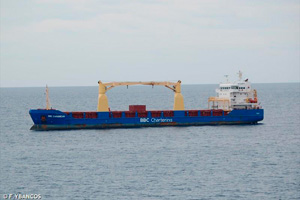
Pirates have kidnapped seven Russians and one Ukrainian after attacking the cargo ship the BBC Caribbean off the coast of Nigeria, the Russian embassy said on its official Twitter account. The embassy has asked Nigerian authorities to assist in locating the abducted people. The Nigerian navy and police were not immediately available for comment. The general cargo vessel BBC Caribbean is managed by Briese Schiffahrts. "The armed pirates approached (the vessel) in a boat, captured the crew and left on the boat at the direction of the Nigerian shores," said Pavel Fedulov, the director of a Briese Schiffahrts subsidiary in St Petersburg, according to Russian news organisation RBC. No firearms were used during the attack. Security experts class West Africa’s waters, especially off Nigeria where most of the pirates originate, as some of the world’s most dangerous, with attackers often targeting oil tankers as well as hostages to ransom. As oil prices have dropped, pirate gangs have taken to abducting crew for ransom as a way to make more money. Security analysts say the pirates have emerged from militant groups in Nigeria’s oil-producing Niger Delta. At around the same time, the Nigerian navy repelled two pirate attacks off Bonny Island on an oil tanker, the MT Gaz Providence, and its 21 crew members, and a double attack on oil tanker MT Rio Spirit. Adapted from: gcaptain, Thomson Reuters | |
| A new ISO Committee on organizational governance established | 09.02.2017 |
|
To answer to the questions - how transparent is an organization? Where is it headed? How is it managed? How is it controlled and held accountable? – a new Committee of the International Organization for Standardization was established. Mr. Dave Adamson of the British Standards Institution (BSI) deals with the establishment of the new Committee ISO/TC 309, "Governance of organizations". The aim of establishing a new body, as commented by Mr. Adamson, is to make sure that organizations fulfil their purpose successfully on behalf of the people to whom they are accountable. This may mean that an organization is clear to stakeholders, including about the way they run the business. Mr. Adamson believes everyone can benefit from the work of the new ISO committee. The first standard developed by the Committee is likely to offer high-level principles and direction on how to establish an effective governance system that can be used by organizations of all sizes, from the largest multinational to the smallest one-person business. The new ISO committee, whose secretariat is held by BSI, will consolidate good practice for effective governance of organizational performance by developing standards for all aspects of governance, including direction, control and accountability. These should help organizations demonstrate commitment to stakeholders through evidence and reporting, and encourage the governing body to make the right decisions, meeting the organization’s objectives. In addition to this overarching standard on governance, the committee is also considering work on whistleblowing, compliance and corruption. With prior responsibility for ISO 37001 on anti-bribery management systems and ISO 19600 on compliance management systems, it will benefit from the pool of experts that developed those standards. It is expected this work will help meet the targets of United Nations Sustainable Development Goal 16, dedicated to the promotion of peace, justice and strong institutions, by increasing transparency and accountability, as well as good direction and control of organizations. The committee’s first meeting was held in mid-November 2016 in London and, already, 38 countries have expressed interest to be involved in this work. Adapted from: www.iso.org | |
| Sovcomflot’s Arctic Tankers Hit Milestone "One Million Tonnes" | 03.02.2017 |
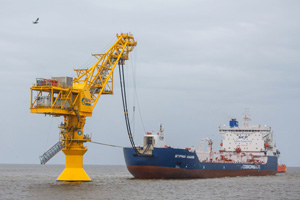 The SCF tanker Shturman Albanov pictured at the Arctic Gate marine terminal near Cape Kamenny in the Gulf of Ob. The SCF tanker Shturman Albanov pictured at the Arctic Gate marine terminal near Cape Kamenny in the Gulf of Ob.Russian shipping company Sovcomflot (SCF) says its new arctic shuttle tankers have now transported one million tonnes of crude oil from the Yamal Peninsula to the port of Murmansk via portions of the Northern Sea Route. In total, the three SCF tankers have completed a total of 33 voyages carrying cargoes from the Novy Port oil field in the Gulf of Ob. The company said Monday the milestone millionth tonne cargo was loaded on board the tanker Shturman Albanov on Sunday at the Arctic Gate marine terminal located near Cape Kamenny. Sovcomflot’s three Arctic shuttle tankers, known as Shturman Albanov series, are custom-designed to carry crude oil from the Yamal Peninsula to the port of Murmansk all year round. The vessels are registered under the Russian flag and are homeported in Saint Petersburg. Oil produced at the Novy Port field is shipped under a long-term contract with Gazprom Neft. The tankers are the first to allow year-round transportation of crude oil from the Novy Port field to Murmansk via portions of the Northern Sea Route, including the Gulf of Ob, Kara Sea, and Barents Sea. Each tanker has deadweight of approximately 42,000 tonnes and is designated to ice class Arc7, capable of operating in the Arctic at temperatures down to –45°C. All three vessels have a length of 249 m and a breadth of 34 m. The first ship in the series, Shturman Albanov, joined the SCF fleet in August 2016 and loaded the first cargo from the Arctic Gate on September 12, 2016. The two other tankers, Shturman Malygin and Shturman Ovtsyn, were put into service in October and December 2016, respectively. Adapted from: gcaptain | |
| European Parliament’s Environment Committee called for a ban to use heavy oil as fuel in Arctic | 03.02.2017 |

Members of the Environment Committee of the European Parliament came up with an initiative to ban the use of HFO as fuel in the Arctic waters. As the official EP website informs, 111 members of the Committee voted in favour of this decision, 8 voted against, with one abstained. It is emphasized that the decision taken by the European Parliament’s Environment Committee Committee was backed by almost all of the political groups. The statement notes the negative influence of heavy oil products on the human health and environment. Black carbon emissions were already identified as the second, in terms of impact, reason of climate change, following the carbon dioxide. The ban to use HFO is already in force for the Antarctic. The statement by the sustainable transport group Transport & Environment (T&E) says: «In the event of an oil spill arising from a shipping accident, HFO is impossible to fully clean-up – with catastrophic effects on extremely vulnerable Arctic habitats». It notes further that the UN’s maritime body, the IMO, has so far failed to extend the prohibition to the northern polar region. «We welcome MEPs taking the bold initiative to call for a ban on the use of the world’s dirtiest fuel in the Arctic. It’s unfortunate that the issue is not even on the IMO’s agenda as yet. EU member states should follow the political resolve shown by Europeans’ representatives and champion the protection of one of the most vulnerable ecosystems in the world at the IMO», - commented Faig Abbasov, shipping policy officer at T&E. Dr Sian Prior, lead advisor to the Clean Arctic Alliance, said: «The Clean Arctic Alliance welcomes the clear position by the European Parliament’s environment committee, in particular its call for an HFO-free Arctic. Banning heavy fuel oil use by ships operating in the Arctic would reduce both the impact of oil spills and the levels of pollutants which drive the melting of snow and ice in the Arctic. This resolution is a clear message to the International Maritime Organisation that European citizens want a ban on the use of HFO in the Arctic adopted by 2020». HFO accounts for 75% of fuel used by Arctic-going ships. The next, 71st session of the IMO’s Marine Environment Protection Committee will be held in July this year. Sources: www.portnews.ru, www.transportenvironment.org | |
| Report on the 97 session of the IMO Maritime Safety Committee | 30.01.2017 |
|
Hereby we inform our readers of the release of the report on the 97th session of the Maritime Safety Committee (MSC) of the International Maritime Organization, issued by the Secretariat of the Organization in two documents, MSC 97/22 and MSC 97/22/Add.1. This session was held at IMO Headquarters in London from 21 to 25 November 2016. Among the questions presenting major interest from the safety of cargoes carriage standpoint, the following may be noted:
The «Interim Recommendations for Carriage of Liquefied Hydrogen in Bulk» adopted by resolution MSC.420(97) are a supplement to the International Code for the Construction and Equipment of Ships (IGC) and adopted by IMO with the purpose to acquire sufficient experience of their application to include them into the IGC Code at some later stage as a requirement. Following this principle, the Organization urges its Member States and industry representatives to forward to the Secretariat data on the operation of ships carrying liquefied hydrogen in bulk for further development of the IGC Code. Please refer also to our newsletter of 6 October last year. The approved amendments to IMSBC paragraphs 4.5.1 & 4.5.2, sections 1, 4, 13 and to SOLAS regulation II -2/20.2 are expected to be adopted at the next, 98th session of MSC (July 2017), where the dates of their entry into force will be defined. Apart from the above, MSC adopted a number of amendments to the SOLAS and STCW Conventions and FSS, IGC and IS Codes, and a number of recommendations to various IMO instruments. | |
| VIII Nevsky International Ecological Congress «Ecological education – clean country» | 24.01.2017 |
|
The event is organized by the Inter-Parliament Assembly of CIS States, Federation Council of the Federal Assembly of the Russian Federation and Ministry of Natural Resources and Ecology of the Russian Federation; it will be held in the Taurida Palace of St.-Petersburg. VIII Nevsky International Congress is dedicated to aspects of responsible ecological conduct, development of «green economy», culture of production and healthy lifestyle. It is planned to develop, on the basis of discussions held, proposals on improving legislation aimed at further elaboration of ecological education, implementation of green resource-saving technologies, insurance of healthy environment and improvement of human well-being. The President of the International Dangerous Goods & Containers Association, Mr. G. Moshkov, has received an invitation from the Council of the Inter-Parliament Assembly of States Parties to the Commonwealth of Independent States to take part in deliberations of the VIII Nevsky International Ecological Congress «Ecological education – clean country», which will be held on 25 and 26 may 2017 in St.-Petersburg. The proposal to take part in the Congress is gratefully accepted by the International Dangerous Goods & Containers Association, and its representatives will contribute to the VIII Congress’ deliberations. | |
| International Maritime Treaties recognition by the new U.S. administration | 24.01.2017 |
 Much has been theorized in the past two months concerning whether the Trump Administration will follow through on President-Elect Donald Trump’s campaign pledge to "rip up" international trade deals such as the North American Free Trade Agreement (NAFTA) or withdraw from the World Trade Organization. But what of potential treaties that have not been entered into yet? What can we expect from the Trump Administration? If the transportation infrastructure of the country is to be improved and modernized, the law governing transportation should be improved and modernized as well. Ratification of the "Rotterdam Rules" could provide a cornerstone for that effort. The aim of the Rotterdam Rules, signed in 2009, is to unify the law governing international door-to-door carriage of cargo. Its charge is to help modernize international carriage by facilitating electronic commerce in the same manner as domestic U.S. law now facilitates domestic electronic commerce. Today, U.S. parties often file loss or damage suits against carriers in foreign countries rather than in the United States. Bills of lading issued by carriers often contain clauses that require suits to be filed in foreign countries – and those clauses have been upheld by U.S. courts. The Rotterdam Rules change this equation by permitting U.S. cargo interests to file suit in the U.S. against carriers for loss or damage to cargo carried to or from the U.S. even if the carrier’s bill of lading calls for suit in a foreign country. The Trump Administration’s oft-stated goal is to be the most business-friendly administration in decades. Should this be the case, the Rotterdam Rules may well have the support of Trump after he is inaugurated on Jan. 20, 2017. In principle, international and domestic chambers of commerce have supported ratification of the Rotterdam Rules, and carrier and cargo interests involved in the international carriage of goods have already acknowledged the rules’ value in the maritime industry. An interesting example of this acknowledgement is ExxonMobil, which incorporated the Rotterdam Rules into its ExxonMobilvoy 2012 form of charter party. See Clause Paramount, paragraph 27(i) beginning at line 448 of the form, a copy of which is posted on the Gard AS website. The incorporation of the Rotterdam Rules as the "default" contractual arrangement for cargo disputes between the owner and the charterer under ExxonMobilvoy 2012 is a business decision for shipping interests. A Renewed Interest in UNCLOS? Separately, the United Nations’ Convention on the Law of the Sea (UNCLOS) remains unratified by the U.S. Senate. There was industry optimism that President Barack Obama and Vice President Joe Biden would push for its formal recognition, having made positive statements concerning UNCLOS when serving on the Senate Foreign Relations Committee. However, eight years have come and gone without significant progress toward ratification. UNCLOS has maritime commerce implications concerning deep-sea mining, telecommunications, oil interests and the Arctic, all of which mean potential jobs and revenues for U.S. businesses. Over the years, interests such as the U.S. Chamber of Commerce and the American Petroleum Institute supported it. A pro-business administration such as Trump’s is likely to take a keen interest in UNCLOS. Adapted from: gcaptain | |
| PSA to roadtest autonomous truck platooning in Singapore | 23.01.2017 |
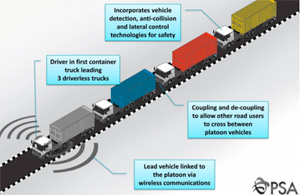 The global truck driver shortage could soon be alleviated by the imminent usage of autonomous vehicles. They have already become a reality in Australian mining, but now port operator PSA is to check out the benefits in Singapore. As reported in Container Management, PSA and Singapore’s Ministry of Transport have signed an agreement with Scania and Toyota Tsusho for the design, development and trial of an autonomous truck platooning system. The trials will involve transport of containers between the port’s terminals, with a human-driven truck leading a convoy of driverless trucks. The port and Singapore itself have been seeking ways to tackle a manpower shortage and shift more movement of freight to nights to reduce traffic congestion. The trials will take place in two phases over three years from January 2017 to December 2019, with the first, year-long phase focusing on design, testing and improvement of truck platooning technology to adapt to local conditions. This first stage will be conducted by Scania and Toyota in their respective research centres in Sweden and Japan, with the ministry and PSA selecting one of the two companies to conduct local trials and some development of the technology in Singapore. The full automation of the processes for cargo docking and undocking is planned. The phase two trials will be run on a 10 km route along the West Coast Highway. They will initially involve inter-terminal haulage between Brani Terminal and Pasir Panjang Terminals, and could then include haulage within the port area and between Pasir Panjang Terminals and Tuas Port. Adapted from: theloadstar.co.uk | |
| On January 18 Ten Years Elapsed Since «MSC Napoli» Ran Into Trouble in the English Channel | 23.01.2017 |
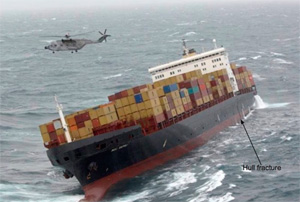 «MSC Napoli» after suffering catastrophic hull damage in the English Channel in January 2007. Photo: UK MAIB «MSC Napoli» after suffering catastrophic hull damage in the English Channel in January 2007. Photo: UK MAIBJanuary 18 marks ten years since the UK-flagged «MSC Napoli» ran into trouble in the English Channel, setting off what is probably the largest maritime salvage job in UK history after the ship was intentionally grounded and broken up off the Devon coast. On the morning of January 18, 2007, the 4,419 teu containership «MSC Napoli» encountered heavy seas during a passage of the English Channel, causing catastrophic hull failure. All 26 crewmembers abandoned ship into two lifeboats and were picked up by Royal Navy helicopters. «The scale of the response and resources required to the salvage the NAPOLI was immense. Fortunately, shipping incidents as time and resource heavy as the NAPOLI are rare within the UK’s jurisdiction», said Hugh Shaw, current Secretary of States Representative (SOSREP), in a statement marking the 10-year anniversary of the disaster. 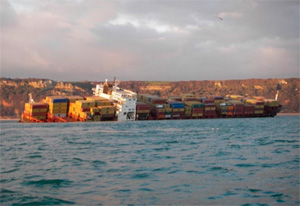 The «MSC Napoli» seen intentionally beached in Lyme Bay, England. Photo: UK MAIB The «MSC Napoli» seen intentionally beached in Lyme Bay, England. Photo: UK MAIBAfter the ship was abandoned, the MSC Napoli was taken under tow towards Portland, UK, but as the disabled vessel approached the English coast there was a growing concern that the vessel could break up or sink. To prevent an even greater disaster, the SOSREP at the time, Robin Middleton, made the decision to intentionally beach the ship in Lyme Bay. A number of containers were lost overboard when the vessel listed heavily after beaching. «Like with all shipping incidents that occur in our waters, we make every effort to protect the environment, and the NAPOLI was no different. The strategy was unusual in that we deliberately grounded the vessel in Lyme Bay to mitigate against a potentially far more serious situation. Failure to take this action would have led to the significant risk of the vessel sinking in the open seas of the English Channel, which could have led to long term environmental consequences as well as navigation safety issues. It is also important to remember that there was no loss of seafarers’ lives during the incident. Once the NAPOLI was in the shallow, sheltered waters of Lyme Bay, the salvage operation was infinitely more manageable,» said Hugh Shaw. In the five months following the grounding, crews worked to remove the vessel’s fuel oil and any remaining container on deck. An attempt to tow the vessel off the beach was made on July 9, but it was quickly determined that the ship was in too poor of condition and it was re-beached 3 days later. Salvors instead opted to break the ship up on the beach using explosives. «From beginning to end the salvage of the NAPOLI took 924 days, and although lengthy, its conclusion set a benchmark in how we mitigate threats to the environment and the public when we conduct training exercises based on the potential of future incidents arising of this nature and scale. It was also a good example of multi-agency and international organisations liaising together. Thankfully, no UK shipping incident has come remotely close to this timescale in the 10 years since NAPOLI.» An investigation into the accident conducted by the UK Marine Accident Investigation Branch determined that, among other contributing factors, the vessel’s hull did not have sufficient buckling strength. Adapted from: gcaptain | |
| China-UK by train | 23.01.2017 |
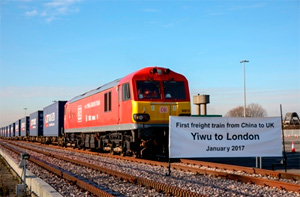
On Wednesday, 18th January, London became the 15th European city to be linked by trans-Asia rail intermodal landbridge services with China. The latest Sino-Europe service, and the first for the UK, is operated by Swiss-based InterRail Group, on behalf of China Railways' affiliate CRIMT. It left Yiwu station with 34 45ft high cube containers loaded with clothing and other "High Street "goods, on 2nd January and is due to arrive in London Barking on Wednesday, 18th January, after 16 days and 12,000 kms. The train had two gauge break container transfers, at the Sino-Kazakh and Belarus-Poland borders. China Railways hauled the train to Dostyk. From there, the union of Russian, Kazakh and Belarus railways all sharing the same 1520mm Russian broad gauge enabled a Kazakh loco to haul the train to Brest, where the containers were transferred to the third set of wagons on European standard gauge and hauled by PKP Cargo to the German rail border. DB Cargo AG moved the train across Germany, stopping in Duisburg and then Aachen, on the Belgian border, where the train was picked up by SNCB Logistics, which hauled through Belgium and France to Calais (Fréthun). DB Cargo UK ran the service from Fréthun via the Channel Tunnel and HS1 to its London "Eurohub" in Barking. All the containers loaded in China were bound for the UK. The service is expected to run weekly for 3-4 months to assess customer demand and economic viability. Westbound headhaul rates are said to be half those of airfreight and journey time is half that of seafreight, so it might work - it does for almost 40 weekly trains from China for various European destinations. Around 20 of these trains stop in Duisburg, Europe's biggest inland port and leading "steel wheel hub." On this occasion, the stop in Duisburg was a technical stop, necessary to transfer the containers to the fourth set of wagons - 17 x 110ft long DB Cargo megafrets, which are approved for Channel tunnel use. Looking ahead, however, if the China-London service proves to be a success, DB Cargo is considering using Duisburg as a more general container exchange stop. Containers from China bound for continental European centres could be taken off and replaced with containers/swap bodies from European centres bound for the UK. This could increase the competitiveness of Channel Tunnel intermodal for Germany-UK and Italy-UK traffic flows. As DB Cargo AG reported on Wednesday, 18th January, the UK is just the latest destination added to the China-Europe rail link. The train is initially being operated as a test train. London is one more international connection for the InterRail Group, along with Duisburg, Madrid, Afghanistan and Riga, on the "One Belt – One Road" corridor, an initiative of the Chinese government. DB has collaborated with partners since 2011 to operate weekly container trains on the world's longest rail line, which connects, among other cities, Duisburg and Hamburg to Wuhan, Chongqing and Harbin, and as of mid-2016, Hamburg to the Chinese province of Hefei. A record number of containers, around 40,000, were transported by train along the Silk Road in 2016. The volume is expected to increase to some 100,000 containers by 2020. The 10,000 to 12,000 kilometre journeys usually take 12 to 16 days and require containers to be unloaded and reloaded multiple times due to changes of gauge. The service is used in particular by customers with time-sensitive commodities, such as special promotional clothing items, and capital-intensive goods, such as automotive parts and electronics. Adapted from: www.worldcargonews.com | |
| Container market recovering - according to the analytics | 16.01.2017 |
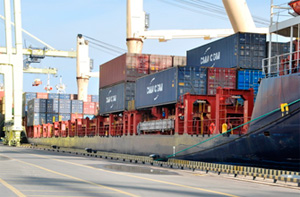
Container market recovered growth in 2016 and, according to forecast, will continue its slow recovering in 2017 despite the remaining downturn in the business, Clarksons’ Research analysts report. Clarksons notes that the key problem of the industry is a slowdown of demand for transportation service over the last years: in 2015, the demand growth slowed down to 2,2% - i.e., the minimum level for the period starting from 2009. However, Clarksons’ analysts come to a conclusion that the market bottom is already behind, and growth in the demand for transportation was accelerated at some point last year. Preliminary figures indicate that the market size has been increased by 3,3% to 180.9 million TEUs for the year 2016. It is noted that out of the three negative factors that were determining poor market development in 2015, just one remains. First, transportation volumes growth has been recommenced for the key direction of transportation from Asia to Europe. Volumes decreased by 3.1% in this segment in 2015 as a consequence of economic stagnation in Europe, Euro weakening and bilateral sanctions imposed in connection with the Russian-Ukrainian crisis. According to the results of the first eight months of 2016 transportation volumes from Asia to Europe increased by 1,4%. Second, last year volumes growth was recommenced in intra-Asian transportation routes after 2015 year slowdown, when economic growth weakened in China in the second half of the year. According to the results of the first seven months of last year, growth accelerated to 5% and equaled to 52.2 million TEUs compared to 3% in 2015. On the other hand, because of remaining low price for raw materials, unfavourable situation on the north-south direction of transportation persists. Volumes transportation growth within this market segment equaled to 1% in 2015. Preliminary figures for the last year indicate that rates slowed down to 0.2%. However, for the current year Clarksons’ analytics estimate some improvement of situation for this trade: in 2017 volumes growth, as expected, will equal to 1.1%. This estimation is based on the behavior of some less important market segments of container transportation, for instance, in services from Asia to the Middle East and the Hindustan Peninsula. According to preliminary figures for 2016, volumes transportation growth equaled to 3,4% for this direction, and for 2017 it is estimated of about 4.9%. On the whole, according to Clarksons’ estimates, market growth rates of container transportation, which equaled to 3.3% in 2016, will accelerate in the current year to 4%. Substantially positive dynamics will be guaranteed with volumes growth at intraregional directions of transportation to 5.7%. Clarksons estimates acceleration of growth rates to 5.5% in intra-Asian services. Adapted from: www.morvesti.ru | |
| A new record of cargo transportation via the Northern Sea Route established | 16.01.2017 |
|
The amount of cargoes transported in 2016 via the Northern Sea Route (NSR) reached a highest ever level. This was stated by the Deputy Minister of Economic Development Mr. Aleksandr Tsybulskiy in his speech delivered at a meeting of the State Commission on the issues of Arctic development. As at December 1 2016, the amount of cargoes shipped reached 6.9 million tons. Source: "Russia’s Maritime News" | |
| List of sessions of UNECE working bodies developing and updating international requirements for dangerous goods, for year 2017 | 16.01.2017 |
|
For information of visitors of our site we are pleased to bring to their attention a list of UNECE 2017 events related to the meetings of UNECE working bodies developing and updating international regulations in the field of carriage of dangerous goods. Source: www.unece.org | |
| XIII International Conference «Multi-modal transportation of dangerous goods» | 16.01.2017 |
|
On 23 and 24 March 2017, the International Dangerous Goods & Containers Association (IDGCA) and the International Staff Training Centre (ISTC), acting in a capacity of Conference Operator, will hold the XIII International Conference under a general title «Multi-modal transportation of dangerous goods». The Conference will be held in Saint-Petersburg in the business premises of the «Azimuth» Hotel. The annual Conference «Multi-modal transportation of dangerous goods» is a unique forum in Russia and CIS States for discussing most vital and urgent issues related to the production, transport and storage of dangerous goods, and legal regulation in this sphere. The main purpose of the Conference consists in establishing an open dialogue between business and authority representatives, removal of unnecessary administrative barriers and enhancement of safety, as well as comprehensive professional assessment of implementation quality of international conventions, standards, regulations and legal acts currently in effect, which regulate activities related to the carriage of dangerous goods by all transport modes, and establishment of fair competition conditions at the transport service market. The scope of the Conference provides for a possibility of getting acquainted with the recent outcome of activities of international organizations on the development and implementation into the business environment of international legal instruments, standards and rules regulating carriage of dangerous goods and containers by all modes of transport. The XIII Conference will be held with support by the ECOSOC Committee of Experts on the Transport of Dangerous Goods and on the Globally Harmonized System of Classification and Labelling of Chemicals (GHS). Participation of representatives of federal and regional authorities, heads of companies and organizations of transport industry, managers of sea and river ports, terminals, railroads, road vehicle companies, cargo shippers, freight forwarders, manufacturers of transport equipment and other specialists concerned, is planned in the Conference. Organizers of the Conference would like to note that the enforcement practice currently adopted in Russia and CIS States for the carriage of dangerous goods, including certification of means of package and packaging, is not adequately supported by national legislative acts, which gives rise to differing interpretations of international instruments by authorities and business communities. To develop suitable recommendations for the authorities and business in order to look for reasonable solutions, it is planned to discuss at the Conference typical situations taking place in real life. Interim Programme of the XIII International Conference enclosed herewith. | |
| One more panamax containership below 10-year-old age sent for scrap | 12.01.2017 |
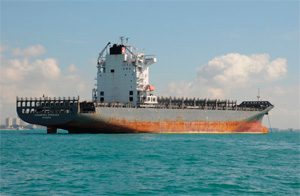 MV Hammonia Grenada at a Singapore anchorage, MV Hammonia Grenada at a Singapore anchorage,January 11, 2016. Another 7-year-old panamax containership is headed to the breakers, all but solidifying the death of the panamax-class amid global shipping’s downturn and the opening of the expanded Panama Canal. Sources familiar with the matter tell us that 2010-built, 4,250 teu M/V Hammonia Grenada has been sold for about $5.5 million. The ship was spotted today in Singapore’s eastern anchorage. The Hammonia Grenada was one of two identical ships delivered to its German owners, Hammonia Reederei GmbH, on January 15, 2010. The vessels were built at China’s Jiangsu New Yangzijiang. Both were initially on a 5-year charter by Compania Sud Americana de Vaproes S.A. (CSAV). More recently the Hammonia Grenada was on charter by Maersk Line lasting until November 2016. If confirmed the Hammonia Grenada will be the youngest containership ever sold for scrap. Records show the Hammonia Grenada is registered in Portugal. Last year, Singapore shipping trust Rickmers Maritime confirmed it also sold a 7-year-old panamax containership for scrap, the 2009-built India Rickmers, in order to pay down debt. The website VesselsValue.com valued the India Rickmers in November 2016, when rumors of its sale first began swirling, at just over scrap value at $5.87 million. The website estimated that its value fell 62% in 2016, primarily due to the widening of the Panama Canal. Prior to that sale, the 2006-built panamax M/V Viktoria Wulff, was sold in September at the age of 10 after its German owner went bankrupt. The Panama Canal opened to post-panamax ships in June 2016 following the completion of the long-awaited expansion project. Adapted from: gcaptain.com | |
| An IMO circular does not define responsibilities and authority of national organizations | 12.01.2017 |
|
Information has been circulated within the business community stating that The Federal Autonomous Institution (FAI) "Russian Maritime Register of Shipping" (RMRS) is a competent inspector agency carrying out works "for the approval, acceptance and all consequential activities connected with IMO Type tanks, containers subject to the provisions of the International Convention for Safe Containers, IBCs and packaging offered for registration in the Russian Federation", as referred to in IMO circular MSC.1/Circ.1517/Corr.1 of 11.04.2016 (2 pages), though without any reference to a regulatory legal act registered in the Russian Federation. This assertion is disorienting for port authorities and business, as those properly familiar with the IMDG Code know that paragraph 1.1.1.4 of chapter 1 stipulates that assignment of responsibilities and authority remains the prerogative of each Government. The context of the said paragraph implies that there should be in place a legal act of a national origin issued at the governmental level, which would define the organization’s authority referred to above. However, no such act was presented as an evidence. It may therefore be reasonably believed that the desire to become a full monopolist in the field of packaging and package certification makes the FAI RMRS management obviating the international and national legislation. | |
| «Commercial Sea Port of Ust-Luga» JS joined the International Dangerous Goods and Containers Association | 12.01.2017 |
|
In early January, the Non-Commercial Partnership «International Dangerous Goods & Containers Association» («IDGCA») was enlarged by accession thereto of a new Company with a full Member status, in accordance with the IDGCA Charter, the «Commercial Sea Port of Ust-Luga» JS. The «Commercial Sea Port of Ust-Luga» JS is a stevedoring Company operating multipurpose terminal YUG-2 (MPT YUG-2) and Auto-Railway Ferry Terminal. In its day-to-day activity, the Company applies advanced technologies and modern managemement concepts, using modern port infrastructure and equipment. We would like to welcome the new IDGCA Member and express our firm belief in fruitful and mutually rewarding cooperation of all Members. For more detailed information on the profile of the «Commercial Sea Port of Ust-Luga» JS please refer to «About Association» page of this site. | |
| HHL «Valparaiso» Delivers STS Cranes via North Sea Route | 11.01.2017 |
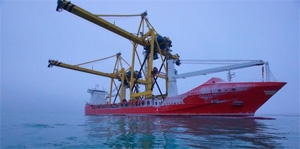
HHL «Valparaiso» arrives at the port of Vostochny, Russia after sailing through the North Sea Route. Melting polar icecaps have allowed the Hansa Heavy Lift (HHL) vessel Valparaiso to successfully transport two ship-to-shore cranes via the Northern Sea Route. The two cranes, weighing 820 metric tonnes each and measuring about 61 meters tall, were loaded on board the HHL Valparaiso in St Petersburg, Russia last October before making the journey through the Northern Sea Route to the port of Vostochny. Due to the configuration the cranes had to be shipped partially above and below deck. Hansa says not only does the voyage represent the first STS cranes to travel through the NSR, the HHL «Valparaiso» is also the first vessel to sail open hatch through the route, which is covered by ice for the majority of the year and only navigable for about two months out of the year. 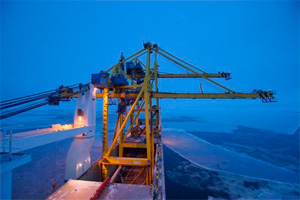
«The Northern Sea Route was the only viable option to complete this voyage in the required timeframe», said Gleb Faldin, Commercial Manager at Hansa Heavy Lift. «During the passage, the vessel has limited connection and only a few points of shelter». 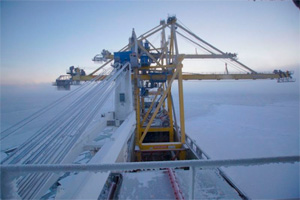
Faldin said a two-month delay in the cargo being ready meant the HHL «Valparaiso» had to be repositioned for the voyage, which was originally planned for HHL «Tokyo». Before loading the cargo in St Pertersburg, the Valparaiso had to travel from Qingdao, China, via the Northern Sea Route. The cargo had to be delivered to its destination by late November before the route completely froze over. «The Northern Sea Route is an important alternative that can save weeks from a voyage, but to be successful you need careful planning and engineering, the right equipment, capable vessels, and experienced crews,» said Heinrich Nagrelli, Project & Transport Engineer at HHL. «Due to the STS’s very high centre of gravity (CoG) at 30 metres above deck and 70 metres air draft, as well as draft restriction of 7.7 metres, a careful and detailed plan was needed from the start. «This included a load spreading design and a structural analysis of the hatch covers and lower hold, a lifting stability assessment, a lifting simulation, fulfilment of Flag State requirements (open hatch, visibility, arctic weather conditions, COLREGs), and the approval of the Russian Maritime Register of Shipping, as well as the arranging of ice breaker assistance», said Nagrelli. HHL «Valparaiso» holds Ice Class E3, equivalent to Russian Arc.4 (Finnish- Swedish Ice Class 1A). 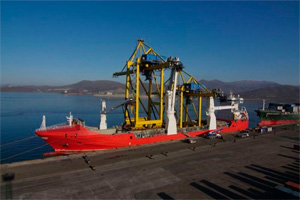
Here are the cranes being unloaded at Vostochny. Adapted from: gcaptain.com | |
| UN shipping body rejects EU climate initiative | 11.01.2017 |
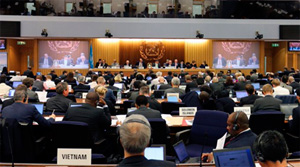
Head of UN shipping body accused of "siding" with countries obstructing climate pact after penning warning against unilateral action to EU chiefs. The UN’s shipping chief has attacked European efforts to impose regional controls on the sector’s greenhouse gas emissions in a letter to leaders in Brussels. EU lawmakers are debating whether the bloc should include carbon pollution from the maritime sector under its emissions trading scheme (ETS). Last month the European Parliament said shipping emissions should be mopped up by the ETS from 2023 if the UN failed to agree on carbon reduction plans by 2021. Kitack Lim, secretary general of the International Maritime Organisation (IMO) said any attempt by the EU to impose new regulations risked "undermining" a climate deal for shipping. "I am concerned that a final decision to extend the EU-ETS to shipping emissions would not only be premature but would seriously impact on the work of IMO to address GHG emissions from international shipping", he said. Any unilateral measures would be a first for the shipping industry, which has so far escaped tough climate-linked regulations and has committed to delivering a carbon reduction plan by 2023. A European Commission spokesperson said negotiations on shipping’s inclusion in the ETS were ongoing in Brussels, but emphasised the EU’s desire to see the sector’s 3% of global greenhouse gas emissions addressed. "There is potential to reduce emissions from the shipping sector significantly, yet currently there are no adequate regulatory measures in place to limit or reduce them. Action is needed. More action and fewer letters." A recent round of IMO talks last October ended in agreement to deliver an initial climate strategy in 2018, but little else. Major emerging economies of China, India and Brazil fear tougher targets will hurt their economic growth, while flag states such as the Cook Islands are also hostile. According to a statement posted on the IMO website, Lim also claimed regional or unilateral actions are "at odds" with the Paris climate agreement, which came into force last November. That appears to place the IMO at odds with the UN’s climate body, which has supported emissions trading and leadership from a variety of regional and sub-national bodies in recent years. Faig Abbasov, clean shipping officer at Brussels-based clean transport group Transport and Environment, said Lim’s intervention is likely to raise further questions over the UN’s ability and desire to deliver a climate deal for shipping. "It’s very puzzling to see the head of the IMO condemning the European Parliament, which has the direct legitimacy of European citizens, for trying to help solve one of shipping’s biggest challenges: its ever-increasing contribution to climate change", he said. "Mr Lim has never written to those countries that have consistently blocked any progress on controlling ships’ emissions for decades; it seems he is siding with them now." Adapted from: www.climatechangenews.com | |


